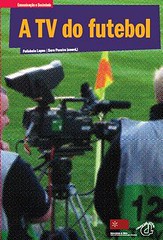Weblogue colectivo do projecto Mediascópio - CECS / Universidade do Minho | RSS: ATOM 0.3 |
Evidências e dissonância cognitiva No site Open Democracy, Todd Gitlin pergunta-se, no texto "The faith-based superpower", como é que a América pode ser uma superpotência assente na ignorância do seu povo acerca do que se passa no mundo, no Iraque, em particular. Como diria alguém, não será propriamente fé, mas "fezada"). Um excerto:
"(...)The news from home is that a March poll conducted by the University of Maryland's reliable Program in International Policy Attitudes discloses that 57% of Americans think that Saddam Hussein, while in power, gave substantial support to al-Qaida. Forty-five percent think that ?clear evidence? found in Iraq buttresses this position. The same percentage, 45 %, believe that Saddam possessed weapons of mass destruction before the war. This is, of course, fantasy. There is no such ?clear evidence.? Close to half of America is living in fantasy. This happens to be the near half that is represented by George W. Bush and his government. What shall we make of a faith-based superpower? (...) In other words, the principle of cognitive dissonance is hard at work. The true believers, faced with pesky evidence that counters their faith, wish it away ? the evidence, that is. If they notice irritating counterevidence in the newspaper, they skim. If they hear the words on TV, they forget them. If anything, as the psychologists Leon Festinger, Henry Riecken and Stanley Schachter wrote in their classic study, When Prophecy Fails, the less their predictions pan out, the more some of them will redouble their energies, harden their faith, recommit themselves to proselytize.(...)".
Quem somos
» Manuel Pinto» Helena Sousa
» Luis Antonio Santos
» Joaquim Fidalgo
» Felisbela Lopes
» Madalena Oliveira
» Sara Moutinho
» Daniela Bertocchi
» Sergio Denicoli
Últimos posts
» "Ciência Hoje" - Jorge Massada lança jornal on-lin...» 7,2 milhões de portugueses utilizam a Internet? ...
» Encontro de jornalistas com D. McQuail na U. Minho...
» Quando as redacções "deixam andar" Joaquim Fida...
» Novo modo de fazer reportagem num diário O jorn...
» O blog de Rebecca Blood chega à maturidade Se "...
» "Em Linha" Em Linha - "A Comunicação vista pela...
» Vivência real nas redacções: "um tema tabu" Hel...
» A visão de um editor de "O Primeiro de Janeiro" ...
» 'O Primeiro de Janeiro' nega ter despedido três jo...
Ligações
-
» Aula de Jornalismo
» Atrium-Media e Cidadania
» Jornalismo Digital
» Ponto Media
» ContraFactos e Argumentos
» JornalismoPortoNet
» Irreal TV
» Indústrias Culturais
» Blogouve-se
» Net FM
» As Imagens e Nós
» Retórica e Persuasão
» Fotojornalismos
» Charme da Bloguesia
» Mas Certamente que Sim
» Sopa de Pedra
» Educomunicação
» Travessias
» A Rádio em Portugal
» Webcom
» A nossa Rádio
» Rádio e Jornalismo
» Engrenagem
» Nós Media
» Observatório da Imprensa
» Blog do Provedor
» Intermezzo
» Jornalismo & Internet
» Midiablog
» Código Aberto
» Ponto de Análises
» Tiscar.com
» First Draft
» e-Periodistas
» Weblog Blog
» Public Journalism Net
» Media Network
» eCuaderno>
» Periodistas 21
» PressThink
» MétaMédias
» Deuze Blog
» Blog Clipping
» MediaTIC
» Le blog des medias
» Le blog TV news
» The OmbudsGod
» E-Media Tidbits
» Romenesko
» Dan Gillmor
» Editors Weblog
» Is Journalism dead?
» JP Cloutier
» Des Gadgets aux Réseaux
» Periodismo Global
» Comunicacion Politica
» Comunisfera
» Loïc le Meur
» D. Schneidermann
Arquivos
» abril 2002» maio 2002
» junho 2002
» julho 2002
» agosto 2002
» setembro 2002
» outubro 2002
» novembro 2002
» dezembro 2002
» janeiro 2003
» fevereiro 2003
» março 2003
» abril 2003
» maio 2003
» junho 2003
» julho 2003
» agosto 2003
» setembro 2003
» outubro 2003
» novembro 2003
» dezembro 2003
» janeiro 2004
» fevereiro 2004
» março 2004
» abril 2004
» maio 2004
» junho 2004
» julho 2004
» agosto 2004
» setembro 2004
» outubro 2004
» novembro 2004
» dezembro 2004
» janeiro 2005
» fevereiro 2005
» março 2005
» abril 2005
» maio 2005
» junho 2005
» julho 2005
» agosto 2005
» setembro 2005
» outubro 2005
» novembro 2005
» dezembro 2005
» janeiro 2006
» fevereiro 2006
» março 2006
» abril 2006
» maio 2006
» junho 2006
» julho 2006
» agosto 2006
» setembro 2006
» outubro 2006
» novembro 2006
» dezembro 2006
» janeiro 2007
Livros


» Felisbela Lopes e Sara pereira (orgs) A TV do Futebol; Porto: Campo das Letras
» Televisão e cidadania. Contributos para o debate sobre o serviço público. Manuel Pinto (coord.), Helena Sousa, Joaquim Fidalgo, Helena Gonçalves, Felisbela Lopes, Helena Pires, Luis António Santos. 2ª edição, aumentada, Maio de 2005. Colecção Comunicação e Sociedade. Campo das Letras Editores.
» Weblogs - Diário de Bordo. António Granado, Elisabete Barbosa. Porto Editora. Colecção: Comunicação. Última Edição: Fevereiro de 2004.
» Em nome do leitor. As colunas do provedor do "Público". Joaquim Fidalgo. Coimbra: Ed. Minerva. 2004
» Outras publicações do CECS
Eventos
» Conferência: A Nova Entidade Reguladora no quadro das políticas de Comunicação em Portugal (2006)» I Congresso Internacional sobre Comunicação e Lusofonia (2005)
» Jornadas ?Dez Anos de Jornalismo Digital em Portugal: Estado da Arte e Cenários Futuros? (2005)
» Todos os eventos
0 resposta(s) para “”
Responder